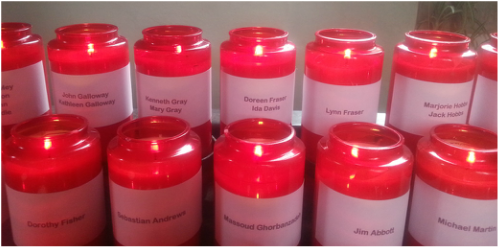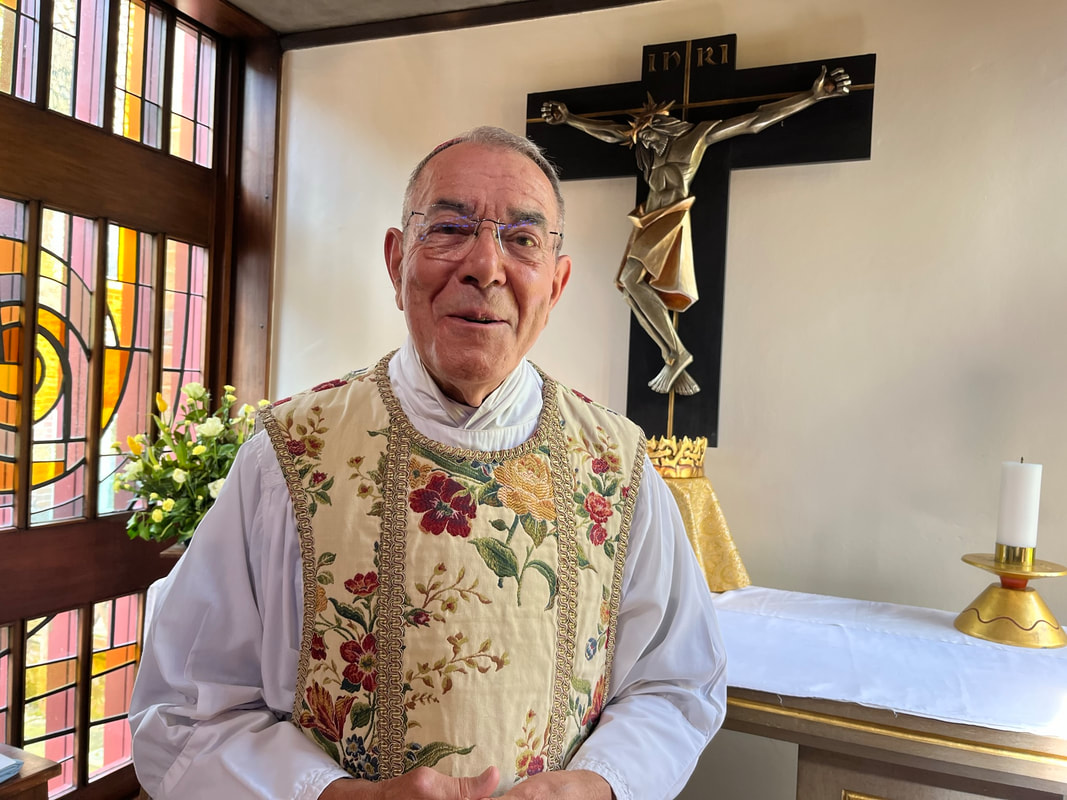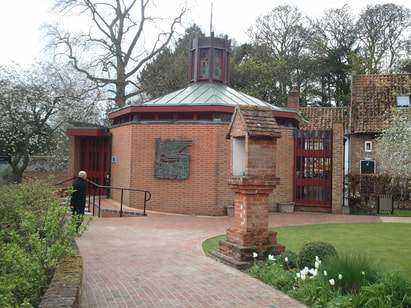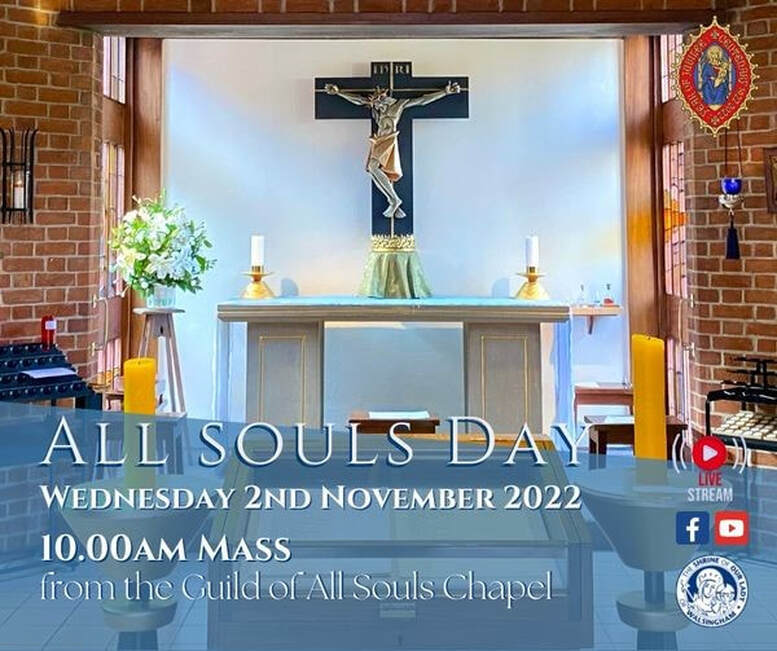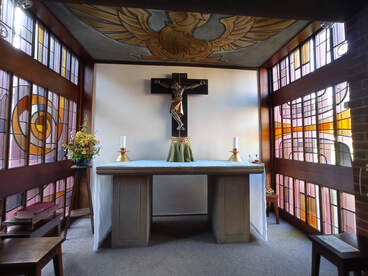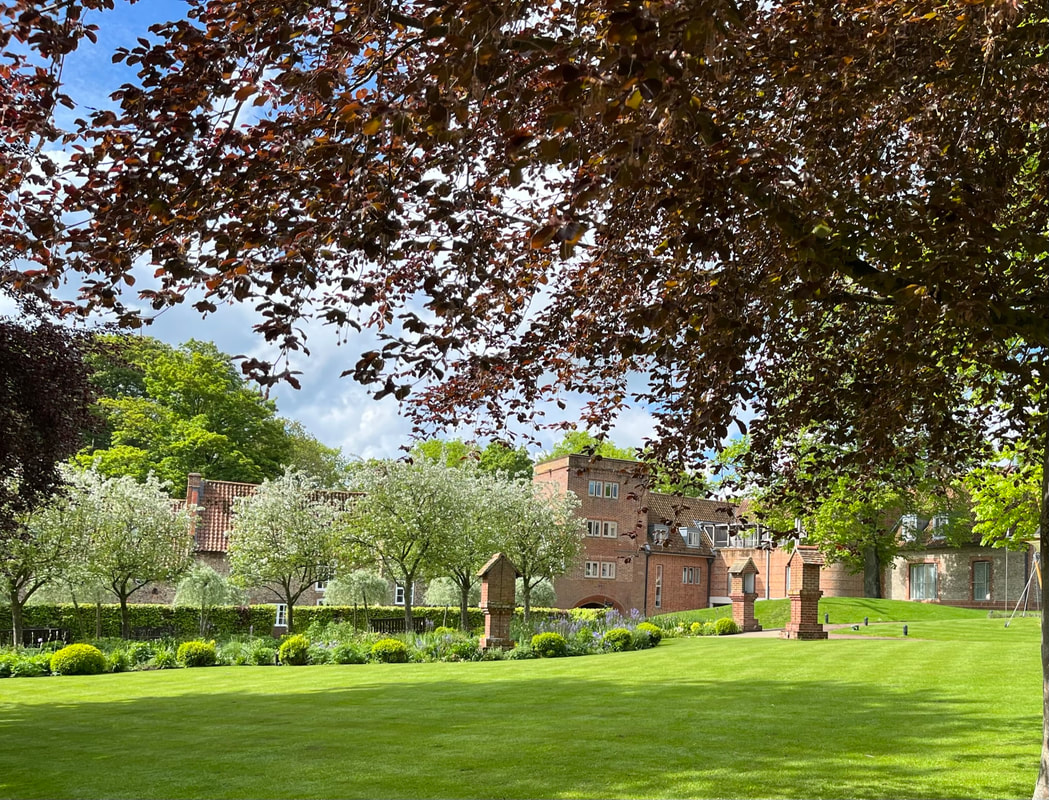The Chantry Chapel of St Michael and the Holy Souls, Walsingham
|
The Chantry Chapel is open daily from 7am to 10pm
Change to Regular Mass Times: Please note that on Thursday 4 July Mass will be celebrated at 10am rather than 5pm. Regular Mass Times: Sunday: 4.30pm on the first Sunday of the month 5pm all other Sundays Monday, Tuesday, Thursday, Friday: 5pm Wednesday, Saturday: 10am A range of Guild literature and Prayer Cards are on display in the Chapel. These are available free of charge - donations are welcome.
It is possible to light Votive Candles in the Guild Chapel and also to request for a 7-Day Lamp to burn in the Chapel - see below. Votive Sanctuary Lamps in memory of the DepartedEach lamp is labelled with the name of the Departed and placed on a stand in the Chantry Chapel at Walsingham, where it burns for 7 days.
There are three ways to arrange for a Lamp In Memoriam:
1. Complete a Guild of All Souls Gift Aid Envelope These are available in the Chapel. Write the Dedication on the back of the envelope. Place a Donation in the envelope. Post the completed envelope through the letterbox in the Sacristy Door of the Chapel. PLEASE WRITE CLEARLY. 2. Contact Mrs Maureen Howard Please give clear details, including the Dedication you wish to make, to: Mrs Maureen Howard, Hillfield, Warham Road, Wighton, Norfolk, NR23 1NZ. 3. Contact the Chantry Priest. There is a suggested donation of £5 for the 7-Day Lamp. Cheques should be made payable to: The Guild of All Souls. What does the name 'Chantry' mean?The term chantry is a medieval one and comes from the old French ‘chanterie’, implying chanting or singing. A chantry came to mean several things. Strictly speaking it was an endowment for the maintenance of priests to sing masses for the soul of the founder or his family. A chantry was often associated with a particular altar in a parish church, or with a chapel specially constructed within the church - plenty of these survive in English cathedrals and parish churches. Whilst a chantry was most frequently founded to pray for the soul of an individual or a family, others were co-operative or were formed as guilds. The chaplain of the guild regularly “minded” or recalled the names of departed members, a practice referred to as “bidding the bedes”. Once a year every name on the parish bede-roll would be read aloud at the parish requiem.
Chantry chapels were also associated with almshouses and schools. For instance, many wealthy pious benefactors founded grammar schools whose pupils were taught by chantry priests who would pray for the founder’s soul. Although the Chantries Acts of 1545 and 1547, which abolished the chantries, effectively closed these grammar schools, some were subsequently re-founded and today many an English school can trace its origin back to a chantry foundation, as can some almshouses and hospitals. At the Reformation, as Protestant ideas began to take hold, so the Chantry priests were prevented from saying the traditional masses for the dead and the term chantry became virtually obsolete until the 19th century, when the Guild of All Souls had at least something to do with its revival. What is the point of reciting all this old history? Perhaps it is just that we can always learn something from the past. In reading accounts of those old Wills which endowed chantries, it is impossible not to be struck by the way so many of the testators set down in their Wills a solemn declaration of faith, which was not just a pious formality or a convention of the time. It would be unusual to do this nowadays, but why not? This might be something we can learn from the past. Based on those old Will preambles here is a modern version: I die in the Holy, Catholic and Apostolic faith of our Lord Jesus Christ as it has been received and taught in the Church of England. I commend my soul to almighty God and trusting in his mercy, implore forgiveness of all my sins. I beg forgiveness of all whom I have injured and I freely forgive those who desire forgiveness of me. Members of the Guild might well compose something on these lines for inclusion in their Wills, as an affirmation of their faith. |
Chantry PriestThe Chantry Priest is always happy to receive requests for prayer for the repose of the soul of a relative or friend to be offered at the Chantry Mass.
The Chantry Priest can be contacted, in person, at Chantry Masses; around the Shrine; by Message or eMail: Bishop Robert Ladds SSC M: 07530 285 389 [email protected] Click here to read more about Bishop Robert and his thoughts on the Guild of All Souls. All Souls Day
|

